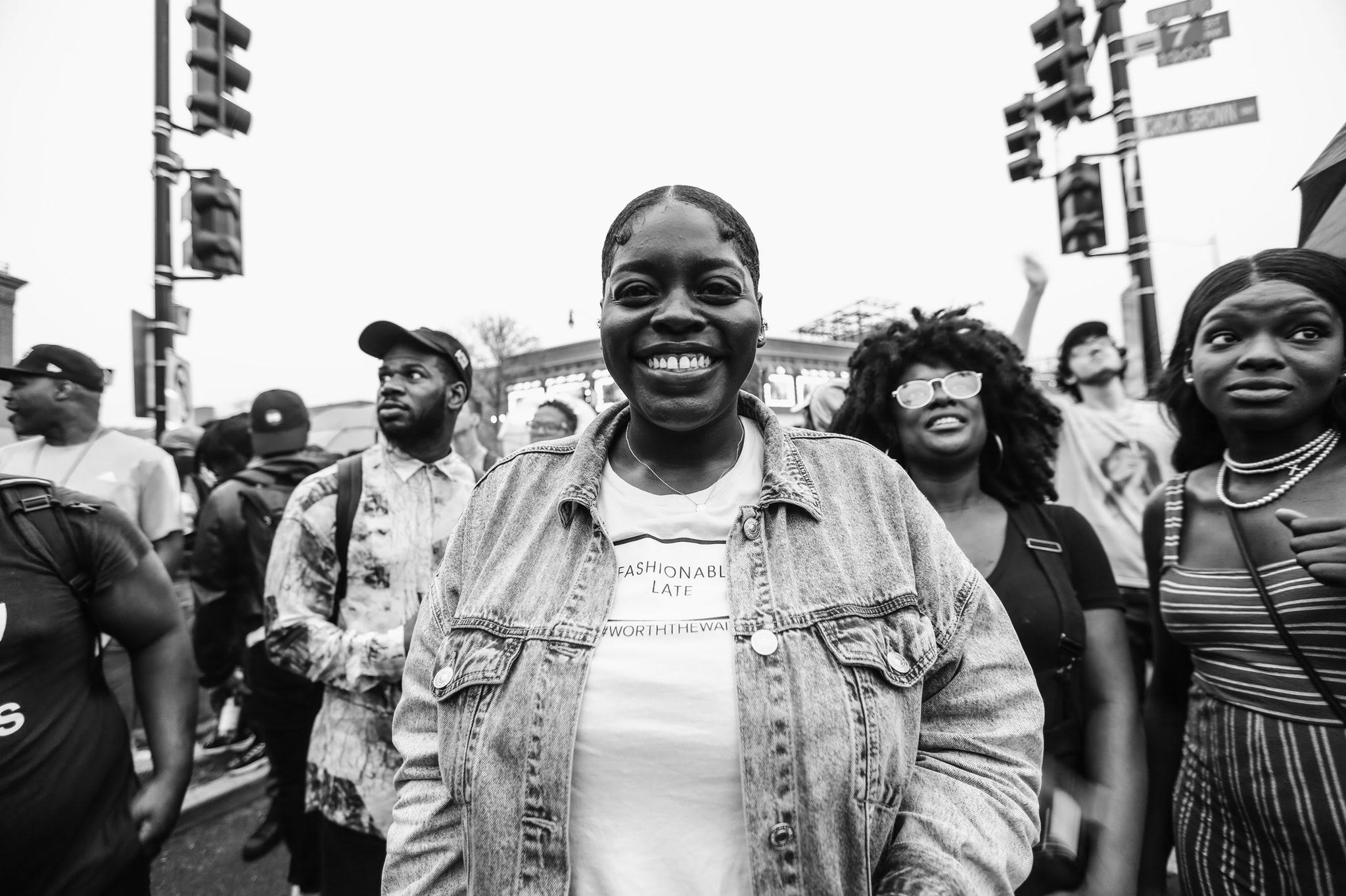The Metro PCS phone store in Washington DC's Shaw neighborhood bumps the region’s signature go-go music 24 hours a day. Natives walk to the beat, their steps falling in line with those who have walked the same path to work, to school, to the good, to the bad and through life. The music becomes ingrained in the city’s story and represents the people, and silencing it would leave the streets naked.
Recent Howard University graduate Julien Broomfield witnessed Shaw fall silent. On a random Saturday in April, Julien was in the car with one of her friends when she rolled down the window. The Metro PCS location’s signature go-go music that had become synonymous with the area was off for the first time since she started her matriculation through Howard five years prior.
“I was livid,” Broomfield told Blavity.
After Broomfield tweeted about the silence that night, she awoke the next morning to back-to-back pinging sounds from her phone. The tweet had blown up, with many demanding to know if what she said was true. Having experienced the tolls of gentrification in her own city of Newark, NJ, and knowing the disbelief, pain and rage that comes with it, Broomfield took it upon herself to figure out why Shaw’s store was being stifled.
I’m not a fan of gogo but the dudes down at Metro PCS on Georgia have stopped playing their music. Apparently, the new yt neighbors were complaining about the “noise”. Simply saying gentrification is sickening is an understatement.— The Love Chopperetta (@heroinej__) April 7, 2019
“I went down and asked the store owner, and he told me that they had been getting a lot of complaints and that they were threatened with being shut down if they didn’t stop the music,” Broomfield said. “They had no choice but to shut it off.”
The 23-year-old captured a video of the store exposed without the surrounding music and followed up with those questioning her on Twitter. Inspired by a friend to create a hashtag, she coined #DontMuteDC as a play on the musical issue.
It’s a Sunday afternoon, it’s nice af outside and there is no Gogo playing from the Metro PCS. pic.twitter.com/uH5rgKW8S2— The Love Chopperetta (@heroinej__) April 7, 2019
“Everything moved really fast from there,” she said. “I had class on Monday morning, and by mid-day, [#Don'tMuteDC] had taken over.”
Local activist Kymone Freeman organized a protest across the street from the phone store, bringing in a go-go band to further illustrate their point: The go-go would stay, and the people would stay. They would not be threatened.
Once this stance was made, D.C. natives came in droves to offer their support. Black and brown people from different corners of D.C. showed up to protest, dance and laugh at the idea of being asked to stop being themselves by those who chose to live among people they clearly don’t understand or respect. By Tuesday night, #MoeChella blocked the surrounding streets.
The hottest event in DC is BACK to kick off summer vacation. ☀️#Moechella PART 2 starts in 1hr on Freedom Plaza – BE THERE???? pic.twitter.com/6B7kY69c7F— The Experience (@experiencecoll) May 27, 2019
“As Black people, we’ve been stripped of our culture for as long as we’ve been in this country,” Broomfield said. “Now that we’re seeing who we are as a people and embracing it, we can’t allow that to happen again.”
The general disrespect of Black culture and attempts at erasure has become ever more prominent in the Shaw area. Howard University, which many consider as the neighborhood’s center, recently faced controversy in regards to white residents walking their dogs on the private campus’ historical Yard. When the students asked that residents walk their dogs elsewhere, one said it the 152-year-old institution should move its campus somewhere else instead.
“It’s ignorance,” Broomfield said. “We’re not saying, ‘White people, don’t come to our campus.’ We’re saying that you should know and respect the culture of coming here before you do. We respect Howard; we pay to be here. The area has been predominantly Black, but Black people are dwindling out. Then people come in, stay in their bubble, let their dog do their business and walk away. That just shows that you don’t know and don’t care to know us.”
Broomfield knows the signs of a changing neighborhood and those individuals who take part in the removal of a community from their home, such as the person who suggested that Howard just relocate to accommodate his pet. She’s seen it firsthand in her own hometown of Newark, NJ.
“It’s similar in most cities,” Broomfield said. “Parks are fixed up, more cops are around and a Whole Foods being built is the beginning of the end.”
Now that she has finished school, Broomfield wants to devote more of her time to combatting gentrification — not only in D.C., but throughout the country.
“I really want to make this a national hashtag,” she said. “#DontMuteDC, #DontMuteNewark, #DontMuteOakland. We have to remember that gentrification is happening across the world. It acts as the more acceptable form of racism.”
Broomfield hopes to work directly with activists and organize her own protests, pushing them through one city at a time. D.C. has proven that they will not be silenced — and neither will she.
